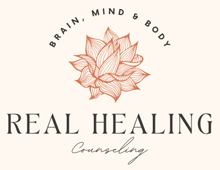Depression
Everybody gets sad and gloomy sometimes. Feelings of sadness are normal and even healthy to have in moderation. When feelings of sadness are consistent and start to interfere with your day to day living, there might be an imbalance of emotions and you may be experiencing symptoms of depression.
Depression is a serious condition that affects many people all around the world.
Depression can make it difficult to get out of bed in the morning. It might cause you to sleep much more than you need to, or not be able to sleep at all. Depression can also isolate you from your friends and family. Depression takes the joy out of activities that you used to enjoy. It keeps you from doing the things you love and even the things you just need to do, like cleaning the house or going grocery shopping. It feels like a heavy weight dragging you down and making you feel like things will never get better. You might even struggle with basic hygiene because everything just seems too overwhelming or too painful, or you just simply don’t care enough to do anything, because nothing seems to really matter. People with depression often feel tired and run down. They might even feel sick or develop pains in their body they can’t explain.


The thoughts that go along with depression symptoms are just as troublesome. People with depression can often have thoughts like “Nothing good ever happens to me”, or “Things will never get better”, or “I am worthless”, or “Life isn’t even worth living”. These thoughts coupled with the dreadful feelings of sadness and hopelessness are extremely difficult to live with and make life a hundred times harder than it already is.
The causes of depression are not scientifically known. The work of Dr. Dan Seigel suggests that depression may be caused by an overwhelmed nervous system. Siegel describes the window of tolerance as the optimal window of “arousal” for a person to function in everyday life. When a person is navigating within this window, they can successfully tolerate and cope with their emotions. For people who have experienced trauma, or compounded stressful events over time, that window of tolerance can shrink. Day to day events or “triggers” then become too overwhelming for the nervous system and it pushes us outside of our window of tolerance. People become hyper-aroused (anxious, hyperalert, etc.) and others can become hypo-aroused (depressed, hopeless, etc.). Many even vacillate between the two.

How Therapy Can Help
Depression therapy can help you:
Identify causes of depression
Learn how to regulate your moods and emotions in healthy ways
Identify what sparks true joy in your life
Connect with your authentic self
Take good care of yourself when you need care and nurturing
Identify and build a healthy support system
Release stored emotions in the body
Work through unresolved issues and traumas
Our therapists can help you to understand what is within your window of tolerance and what causes you to move outside of it. Together you will explore your history as well as your current situation to understand and conceptualize the things that overwhelm you and why. Our therapists can help you to truly gain a felt sense of what it feels like to be within your regulated nervous system so that you can better comprehend when you are outside it. They can also help you to find the best practices, specifically designed for you, that can help bring you back within your window of tolerance when you find yourself overwhelmed or depressed. In therapy, you will gain a better understanding of how to give yourself the attuned attention you need to reintegrate negative thoughts and feelings into your mind and body. This reintegration helps to widen your window of tolerance and allow you to cope and live a much more enjoyable life.
Real Healing Counseling offers you a space that is nonjudgmental and safe to process your pain and tell your story.
